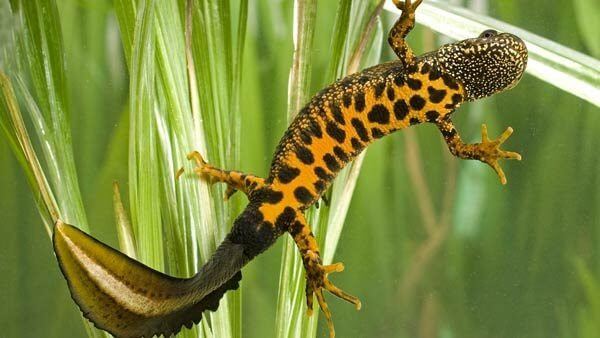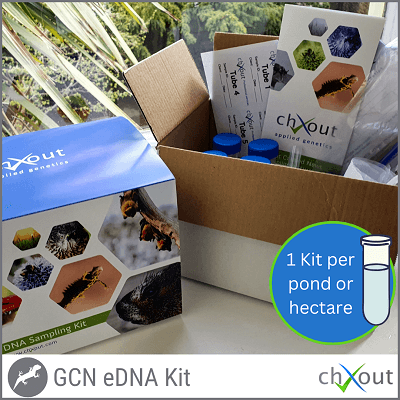
The great crested newt (Triturus cristatus) is the largest and rarest newt to be found in the United Kingdom. In the last century the species has faced a large decline leading to them becoming a protected species in the UK and Europe. Great crested newts (GCN’s), their eggs, breeding sites and resting places are protected by law.
This makes it an offence to:
- capture, kill, disturb or injure great crested newts deliberately.
- damage or destroy a breeding or resting place.
- obstruct access to their resting or sheltering places (deliberately or by not taking enough care).
- possess, sell, control or transport live or dead newts, or parts of them.
- take great crested newt eggs.
Due to their protected status, it is now often a requirement to survey for GCN when there are waterbodies within a certain radius of a development site as part of the planning application. Standard methods of ecological surveys include torch surveying, bottle traps and egg searches by licenced surveyors.
Environmental DNA
In recent years it has become more common to use environmental DNA sampling for GCN detection to complement traditional sampling methods by providing the initial prompt of GCN presence or absence. The method was approved by Natural England in 2014, with sampling required to take place between 15 April and 30 June for results to be accepted by Natural England for planning applications.
Environmental DNA (eDNA) is nuclear or mitochondrial DNA collected from an environmental sample. This can be from water, soil, faeces or even the air! The eDNA is released from the organism into the environment as it interacts with it. This means that a sample can be taken without taking it directly from the organism itself.
It is a powerful tool for surveying aquatic vertebrate communities without disturbing, capturing or physically identifying them. It has been developed as a quick and accurate alternative to traditional surveying methods.
eDNA analysis involves the collection of pond water samples to be tested for traces of GCN DNA within the water.
eDNA Analysis Kit
Kits for eDNA analysis are to be prepared in line with Natural England protocols.
The chXout kit includes:
- 2x pair sterile gloves
- 1x Whirl-Pak stand-up bag
- 1x ladle
- 1x pipette
- 6x 50ml conical centrifuge tubes (each containing 35ml of preservative solution)
- Sample submission form
- Instruction leaflet
- Resealable bag for return of tubes & tube holder (to reduce the amount of packaging involved in the service, we recommend using the delivery packaging and cardboard tube holder for return)

Our kits are provided separately to the analysis cost at £25.00 (incl. VAT) per kit. We have decided to work this way so that you can decide roughly how many kits you require and then add on the analysis each time you use them.
Why choose eDNA analysis?
- Great Crested Newts are a protected Species. The animals, their eggs, breeding sites and resting places are protected by law. eDNA analysis is non-invasive, providing minimal disturbance with one visit to the pond.
- In the event of suspicion of GCN in areas targeted with infrastructure, delays may be faced while traditional surveys are taking place. In this instance, eDNA testing can be used in addition to traditional survey methods by providing the initial prompt indication of GCN presence.
- eDNA Analysis is also ideal for ecological impact assessments and evaluation of conservation measures.
- It can provide an early indication for development project budgeting and timescales.
- During a study carried out to determine the value of eDNA as survey technique, eDNA was found to have a 99.3% detection rate. Comparatively, more traditional survey methods such as bottle traps and torch counts detected newts between 44% and 76% of the time (Biggs et al, 2015).
chXout®
If you are considering using eDNA analysis for GCN detection then you may be wondering why you should choose chXout to analyse your samples:

- Reliability – we take part in the annual FAPAS GCN eDNA proficiency testing scheme for which we have again achieved a perfect score of 100% in 2023 for our second year offering the service! This scheme is in place to ensure that laboratories are providing a consistent, high-quality service.
- Our standardised kit and laboratory procedures are design in line with the approved Natural England protocol Technical Advice Note WC1067 (2014).
- If you are local to County Durham you are more than welcome to drop your kits off in person to us at The Durham Genome Centre for your convenience and peace of mind.
- A friendly and professional dedicated team to look after you throughout the process.
Find out more here.
